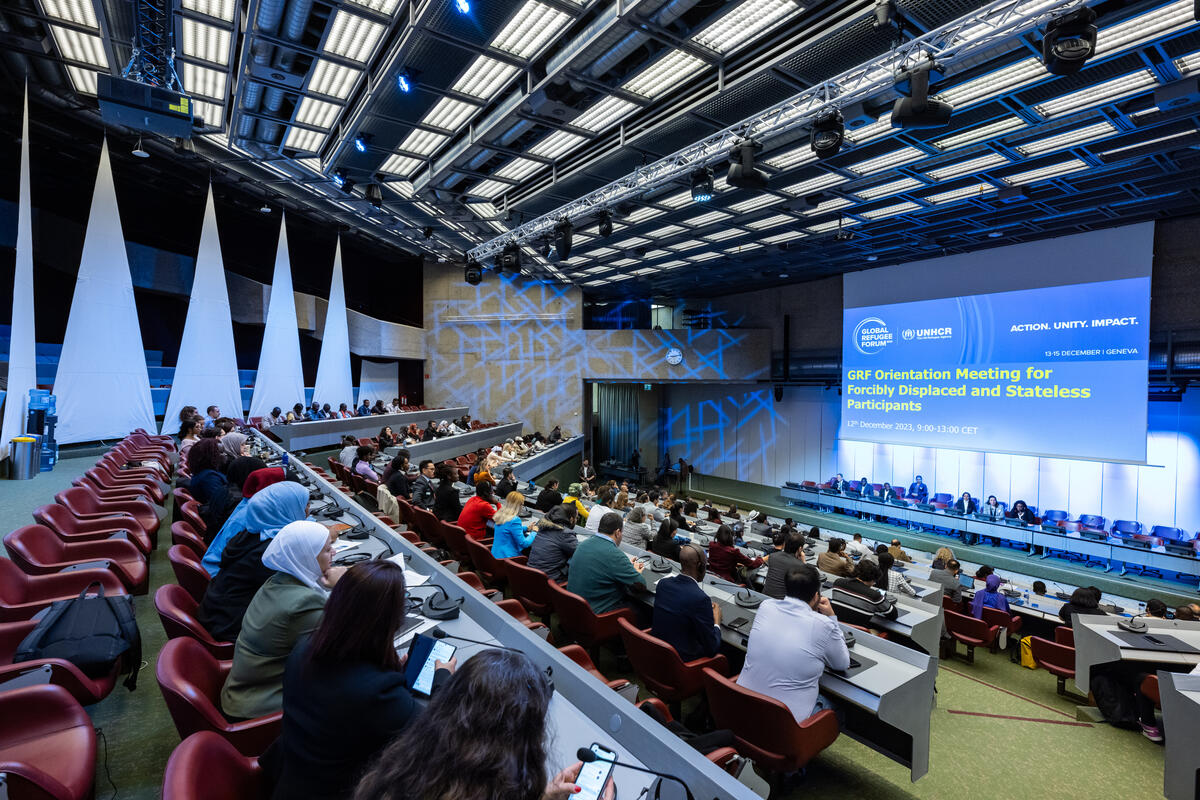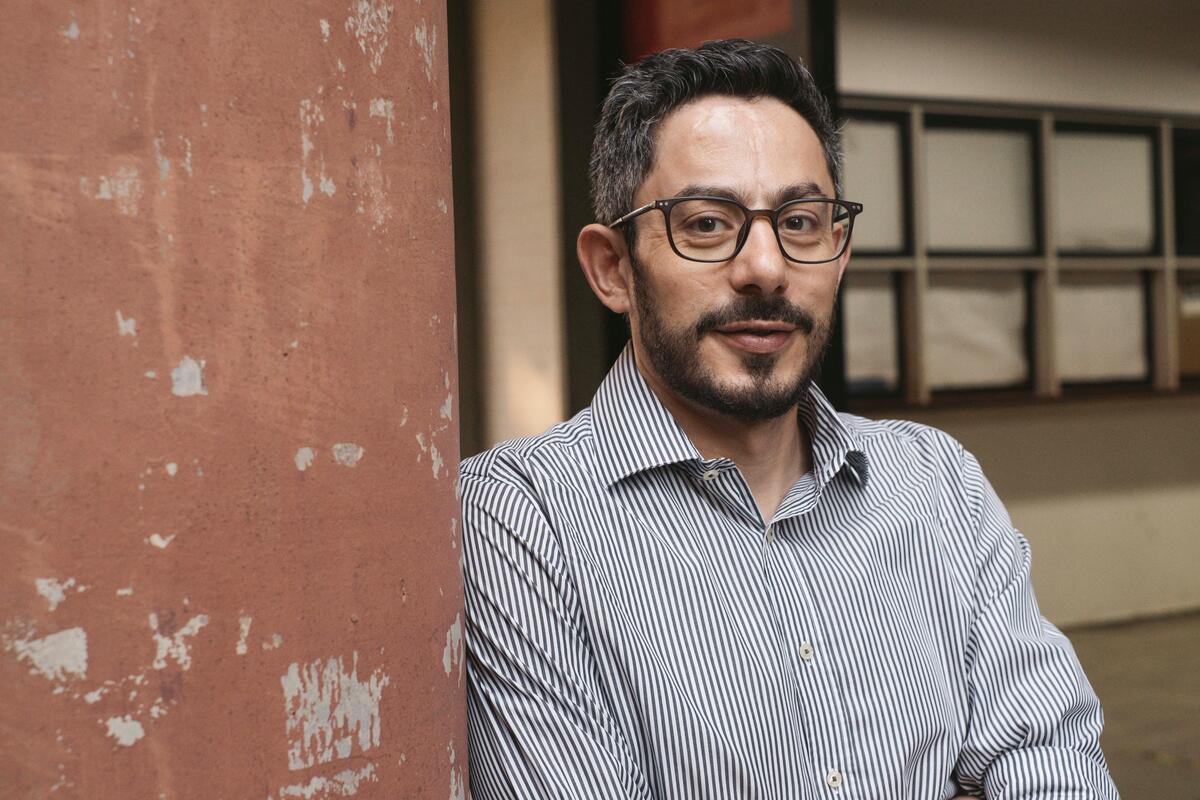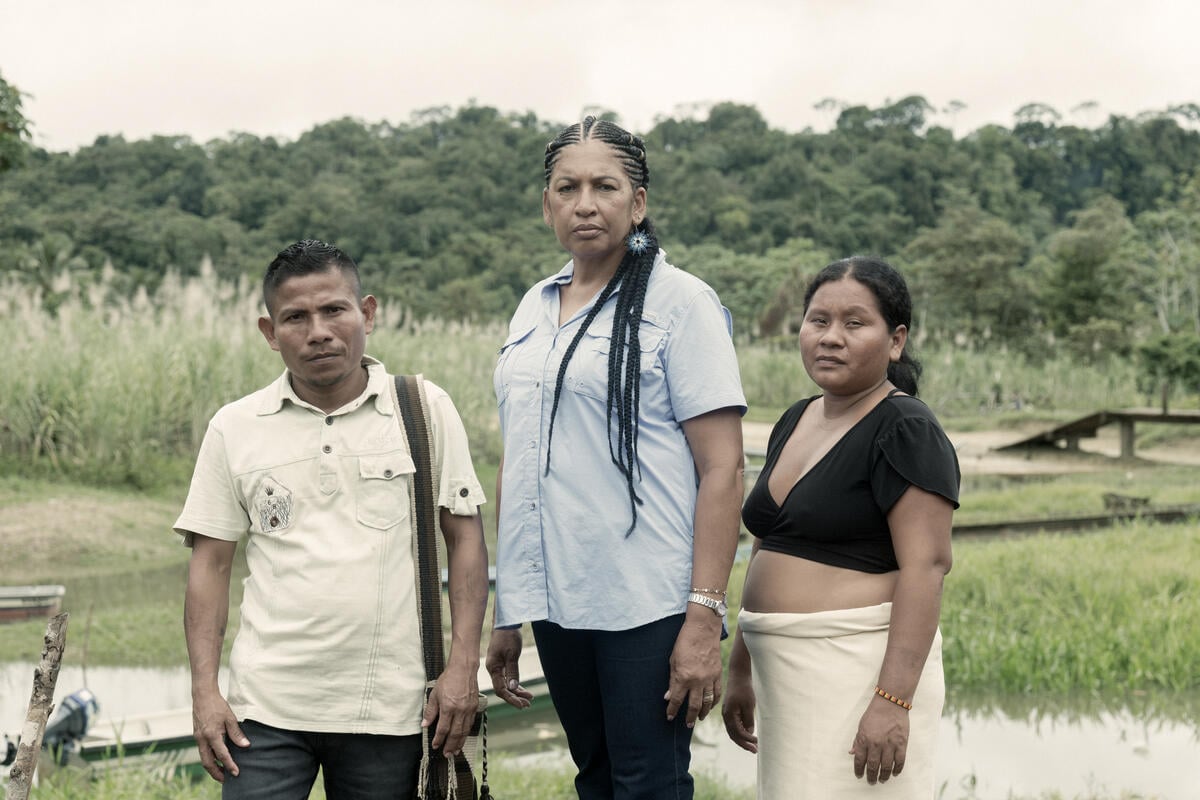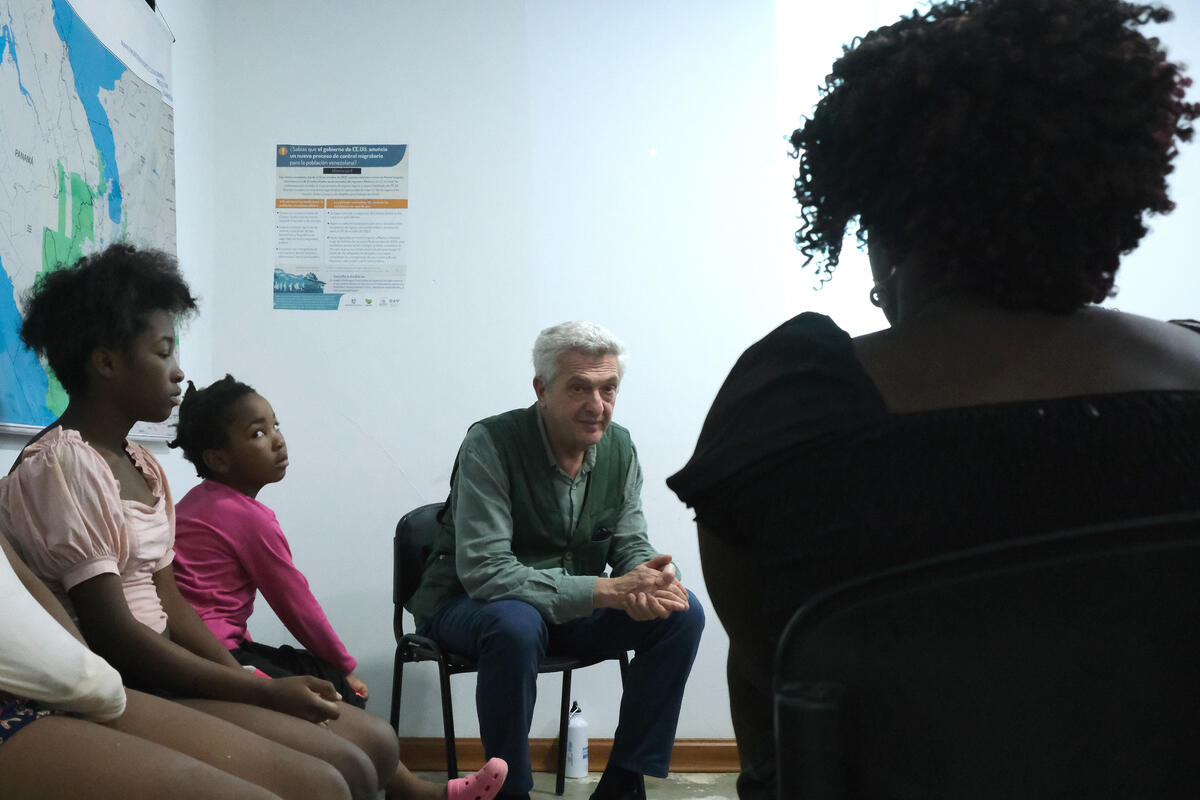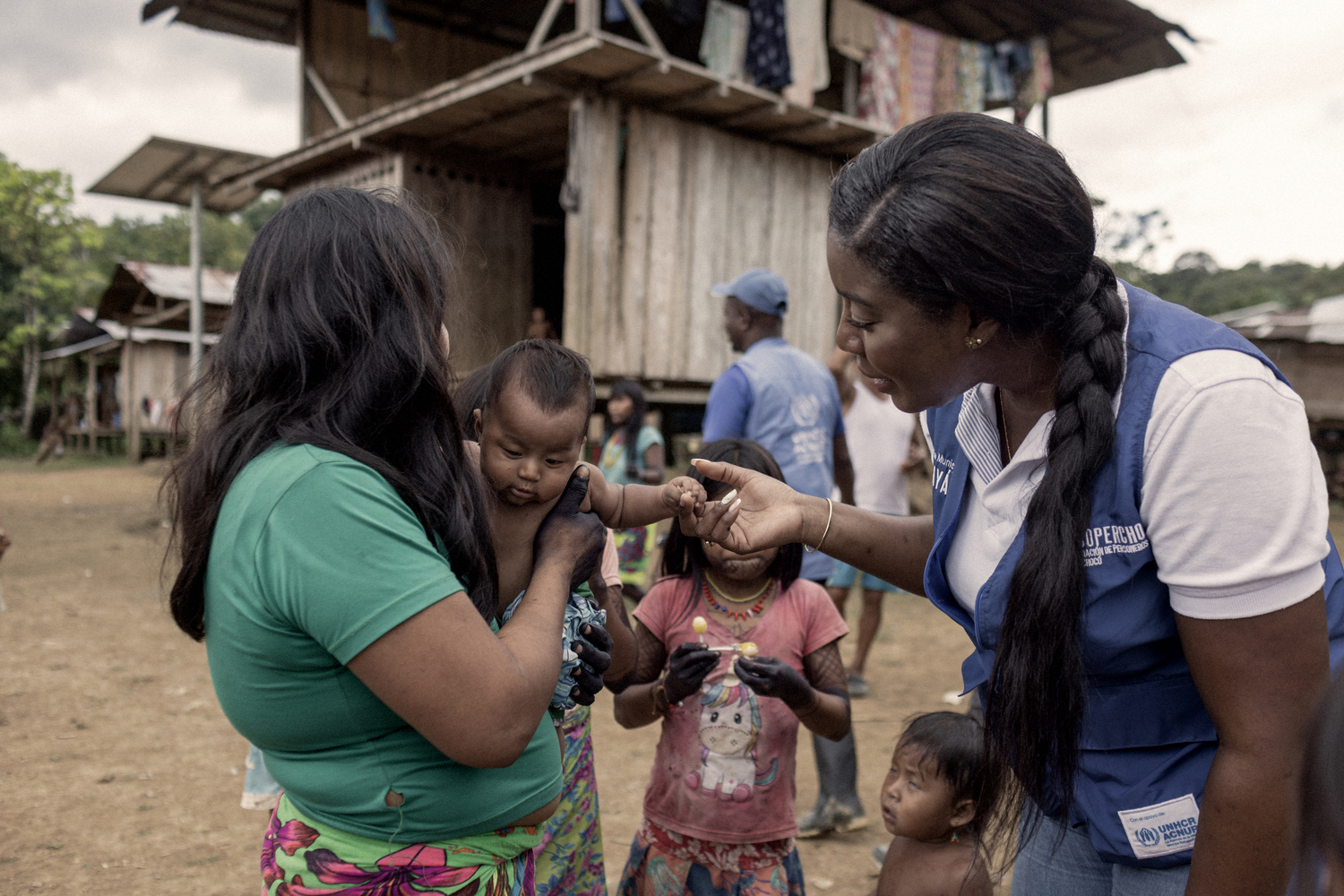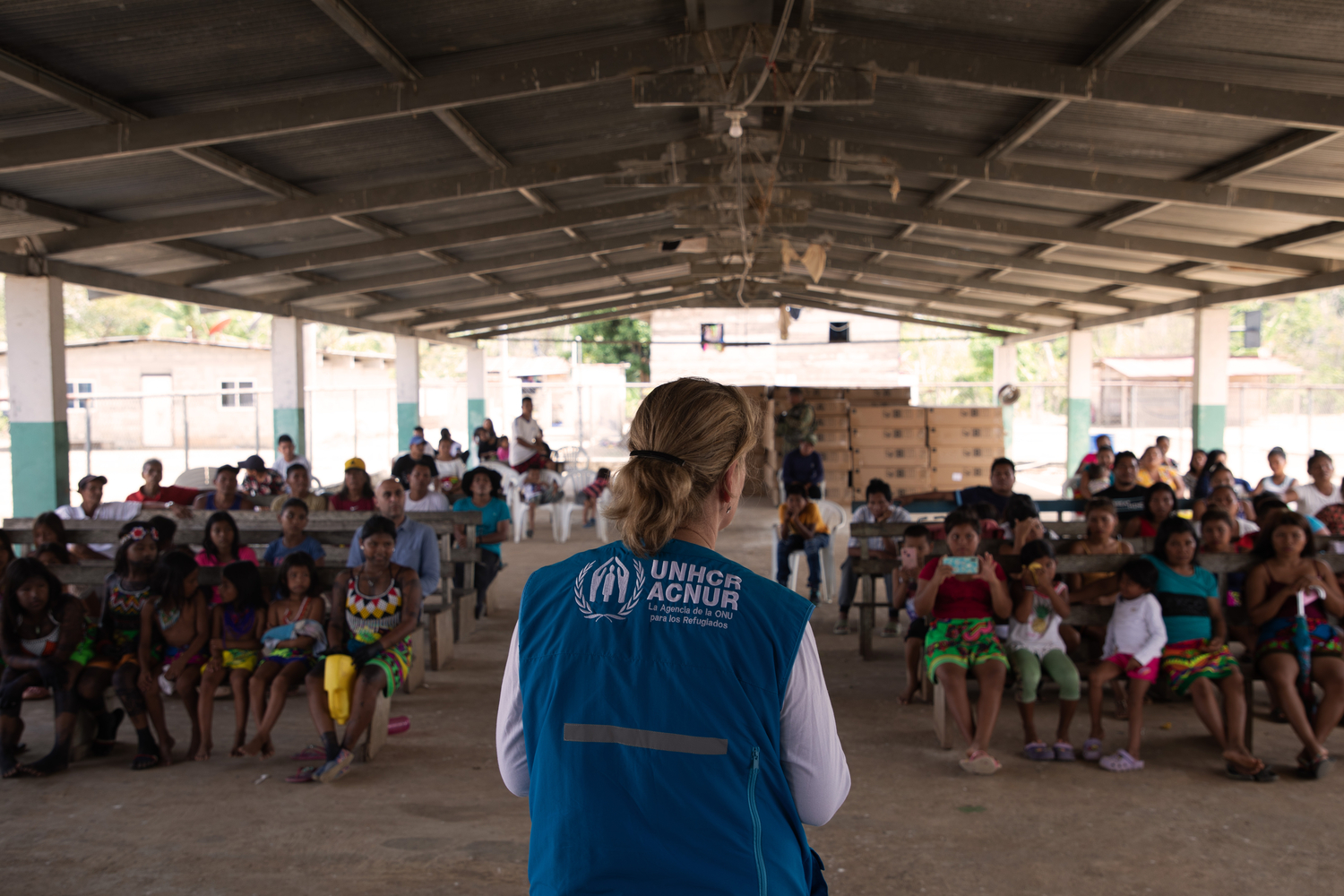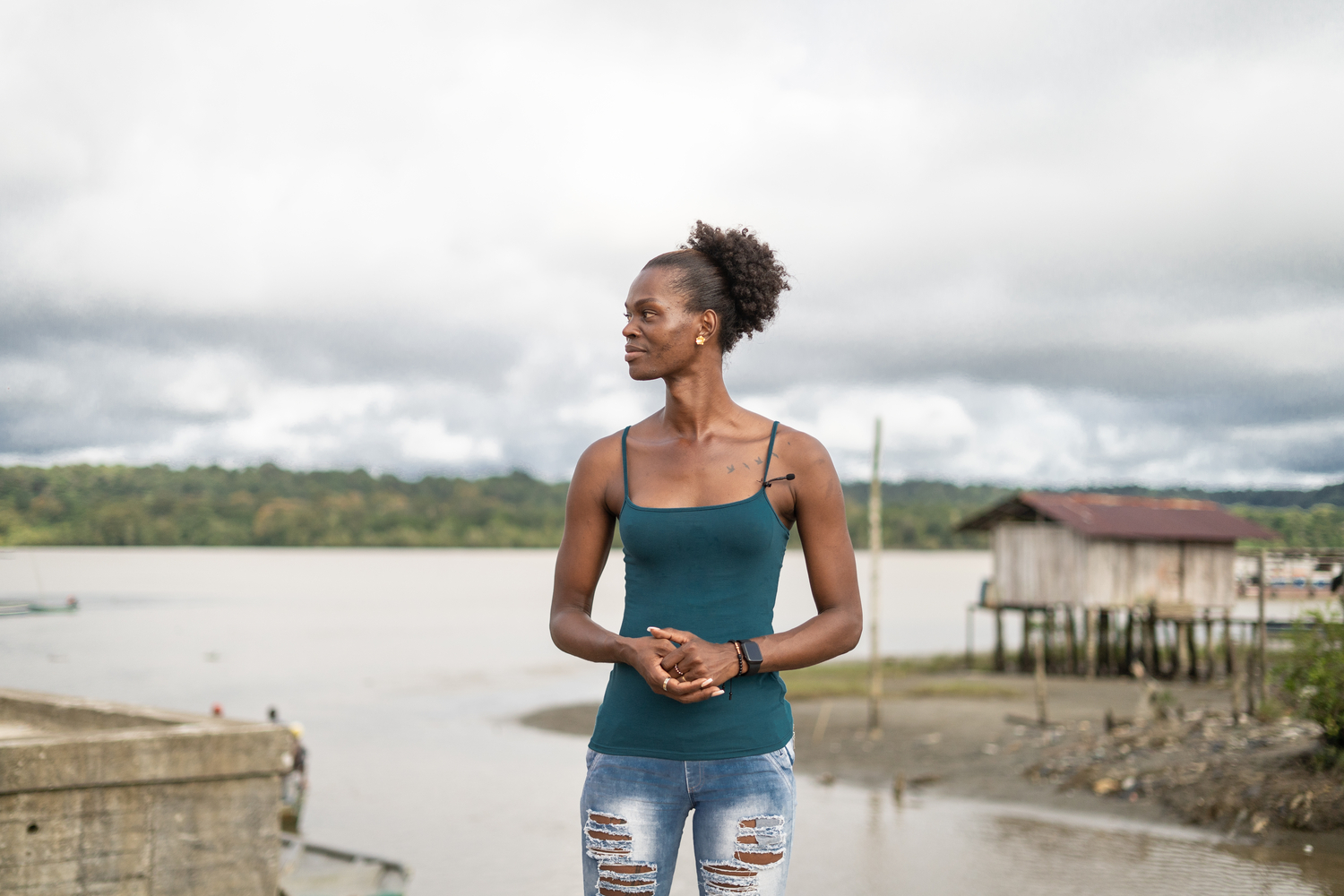Colombian refugees find new routes to protection in Brazil
Colombian refugees find new routes to protection in Brazil
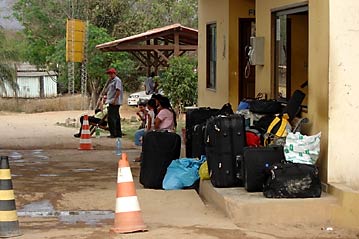
CORUMBA, Brazil, September 20 (UNHCR) - Diego has been trying to escape from his traumatic past, but it keeps on coming back to haunt him. The 27-year-old fled his native Colombia three years ago after surviving a massacre committed by an irregular armed group near Bogota.
First he fled to Ecuador, but he quickly moved further south to Peru when his house in the capital Quito was bombed. Given refugee status, he lived without a problem for a year. Then anonymous letters threatening him and his family back in Colombia started arriving and he was on the road again - this time to Bolivia.
He survived by selling jewellery and artwork on the streets of La Paz, but he was continually nagged by fear - especially as he was not given refugee status and the sense of security it provided. He decided to seek sanctuary in Brazil and to cut all contact with his family, fearing that knowledge of his whereabouts would put them at risk.
Crossing the border here at Corumba last month, Diego joined a growing number of Colombians who have ended up in Brazil after fleeing their country. The number of Colombians seeking asylum in Brazil rose by 300 percent from early 2004 until June this year, according to official figures. Brazil currently hosts some 3,500 officially recognised refugees from Colombia.
But rather than heading straight to big cities like Campo Grande, São Paulo and Rio de Janeiro, more and more Colombians are entering western Brazil at border points like Corumba and Tabatinga and opting to apply for asylum in these settlements.
According to the National Committee for Refugees, between 2004 and the middle of last year, 19 percent of asylum claims by Colombians originated in the Amazon region. This figure rose to 32 percent in the year up to last June.
People like Diego say they do not want to live in the big cities surrounded by other Colombians, fearing their safety will be compromised by spies from their troubled homeland. "You are in a foreign land and you can't talk to your compatriots, everybody is suspicious. It is horrible how the Colombian people have to live, even outside our country," Diego said.
Luis Varese, the UNHCR representative in Brazil, said the mobile nature of the conflict in Colombia between government troops and irregular armed groups was forcing people to go south and cross countries like Peru and Bolivia before entering Brazil at new entry points like Corumba.
Federal police and local religious organisations said a growing number of Colombians have been arriving in Corumba and asking for asylum in the past five months. The government and UNHCR, working with independent aid groups, are providing some facilities and services to these asylum seekers.
The municipality in Corumba runs a shelter for the asylum seekers and gives them advice on how to lodge a formal asylum claim with the federal police. In cases of high vulnerability, asylum seekers receive economic assistance and support to initiate the process for their local integration.
The shelter caretaker said the Colombians there said they had left their country because of persecution, death threats and violence, while most people from other South American countries - largely Peru and Bolivia - said they had come to Brazil to escape poverty.
UNHCR believes that the number of Colombian citizens who have fled to western areas of Brazil - including the Amazonas and Acre areas - but not applied for asylum, could be significant.
In the next few weeks, UNHCR and the Federal University of Amazonas will carry out an assessment mission to try and determine how many "invisible refugees" there are. This will help the refugee agency, the government and civil society to draw up and implement measures aimed at helping this population.
Meanwhile, Diego hopes he can finally find some peace and a new start in this corner of Brazil. "I don't care where I have to sleep; I don't care if I have to sweep streets or do any other job. I am not asking for money, all I want is to live in peace, because this life I have been living is worse than if I had been killed in Colombia that day."
By Thais Bessa in Corumba, Brazil

